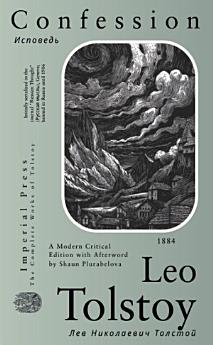Confession
O ovoj e-knjizi
Written between 1879 and 1882 but smuggled out of Russia to evade censorship, the small volume appeared in a pamphlet edition from the Swiss press Posselt in 1884, at the very moment Tsarist authorities were forbidding public mention of the novelist’s religious opinions; its unobtrusive type and grey wrapper belie a tract that Russian readers would only legally see after the 1905 reforms, yet its argument travelled by clandestine copy across intellectual circles from Moscow to London. Within sixty pages Tolstoy narrates the collapse of inherited Orthodox faith, the futility he discerned in literary fame, and the suicidal despair that followed, before recounting how the simple faith practised by muzhiks cutting hay persuaded him that life draws worth from service to others; the prose moves with desperate lucidity, merging autobiographical detail and Socratic dialectics in a texture closer to philosophical confession than to narrative. The tract’s influence upon Russian religious dissent, on thinkers like Berdyaev, and on later existential writing in Europe rivals that of Augustine’s “Confessions,” yet its style remains distinctly nineteenth-century Russian—plain, vigorous, occasionally sarcastic—so that readers today can still hear a man arguing for his soul while the machinery of empire rattles in the background.
This critical reader's edition presents a modern translation of the original manuscript, crafted for the modern reader with clean, contemporary language and simplified sentence structures that clarify his complex Russian phrasing and specific antiquated references. Supplementary material enriches the text with autobiographical, historical, and linguistic context, including an afterword by the translator on Tolstoy’s personal history, impact, and intellectual legacy, an index of the philosophical concepts he employs—emphasizing Existentialism and influence by Schopenhauer—a comprehensive chronological list of his published writings, and a detailed timeline of his life, highlighting the personal relationships that shaped his philosophy.











